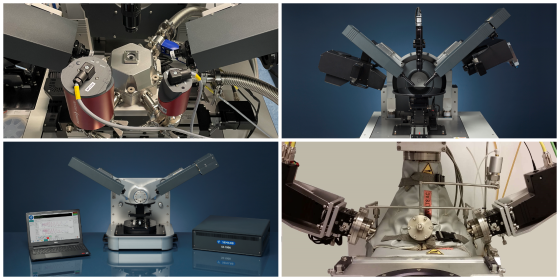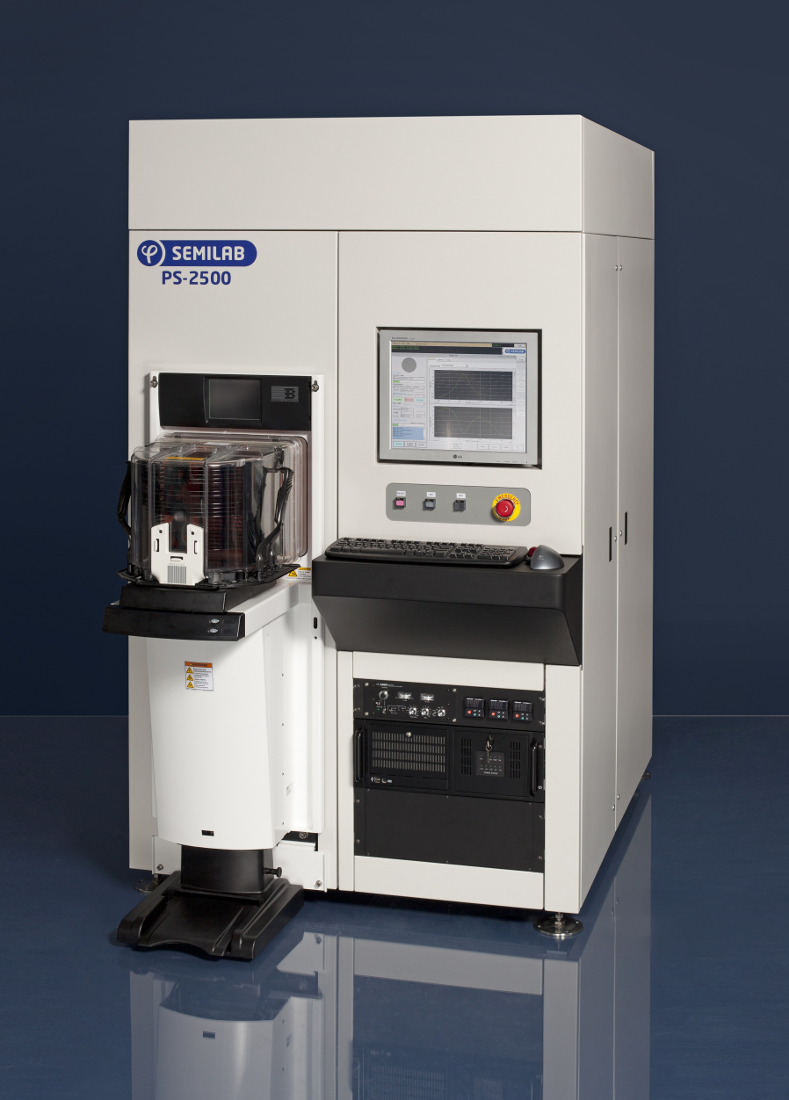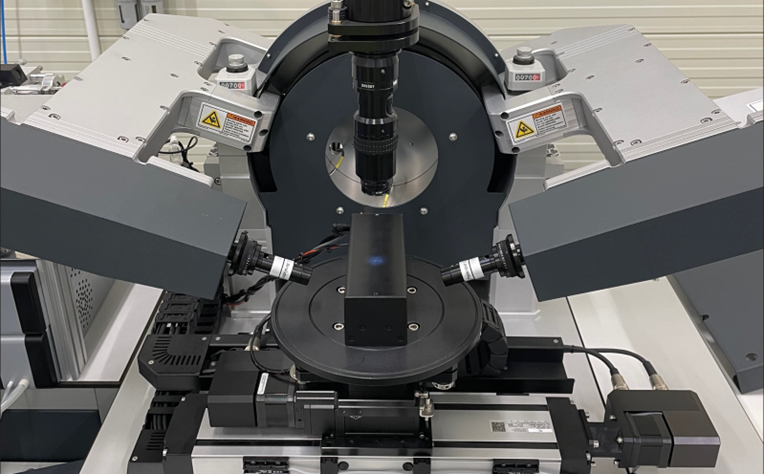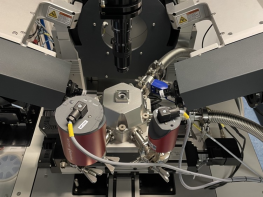Application
THIN FILM OPTICAL CHARACTERIZATION (R&D)
Thin films can be characterized from different aspects. The below listed applications can provide simple and clear information about the wide range of thin film classification.
- Optical, electronic and energy applications: solar cell materials, thermochromic and electrochromic materials, nanocrystalline films. Thin films and doped layers. Study of temperature-dependent optical phase transitions.
- Bio-ellipsometry: biosensor based on measuring the phase shift and Mueller matrix of monomolecular coatings. Anisotropic materials inspired by nature. Total internal reflection ellipsometry. Study of solid-liquid interfaces.
- Real-time ellipsometry: measurement in situ during vacuum chamber deposition cycles.
- Graphene and novel 2D and 3D materials. Characterization of plasmonic response of patterned surfaces. Specular, and oblique angle scatterometry.
- High accuracy determination of optical functions (refractive index, absorption) versus wavelength.
Technology
ELLIPSOMETRIC POROSIMETRY FOR R&D
Ellipsometry Porosimetry (EP) measures the change of the optical properties and thickness of the materials during adsorption and desorption of a volatile specie either at atmospheric pressure (EPA) or under reduced pressure depending on the application (EP). The EP technic is unique by its ability to measure porosity of very thin films down to 10nm, reproducibility and its speeds of measurement. Compares to traditional Porosimeter, Ellipsometer porosimeters is well suited for very thin film pore size and pore size distribution measurement. Film porosity is a key factor in Silicon based technology using low k materials, organic industry (encapsulated OLED\'s) as well as in the coating industry using SolGel technics.
Ellipsometry porosimetry (EP) technology was patented by IMEC and licensed exclusively to Semilab.
Ellipsometric Porosimetry (EP) measures the changes in optical properties and thickness of porous thin films by spectroscopic ellipsometry (SE) during an adsorption cycle of an organic solvent. These changes occur as the pores in the material are being filled by the adsorptive. From the measured refractive Index and thickness behavior during the adsorption cycle, specific layer properties can be deduced: Porosity, Pore size distribution and characteristic pore size, Young’s Modulus, hydrophobicity (water penetration), diffusion coefficient.
Semilab propose two type of adsorption cycle setup: At atmospheric pressure, (EPA) with water as solvent or under vacuum (EP) with many different organic adsorptive (Toluene, IPA, Methanol, Ethanol, Water, ect.).
The technique can access both micro porosity (Pore diameter < 2nm) and meso porosity (2 > Pore diameter > 50nm) and can be used on layers from 10nm to several µm depending on the instrument configuration. Compared to traditional Porosimeter, EP does not require sample preparation or film scratching and are well suited for very thin film pore size and pore size distribution measurement. It is a unique technique by its ability to measure porosity of both single and multilayers thin film structures, with excellent reproducibility and measurement speed.
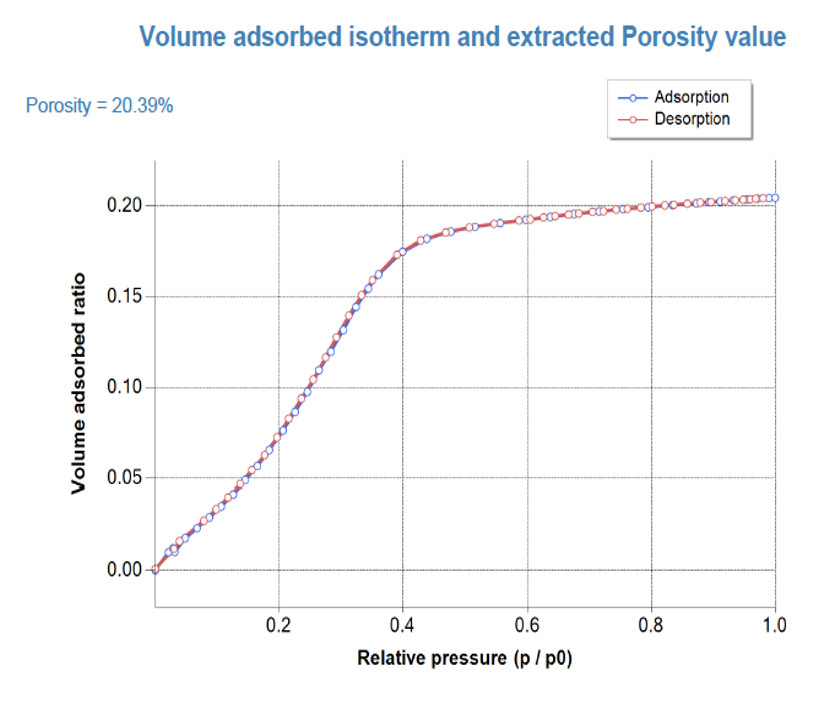
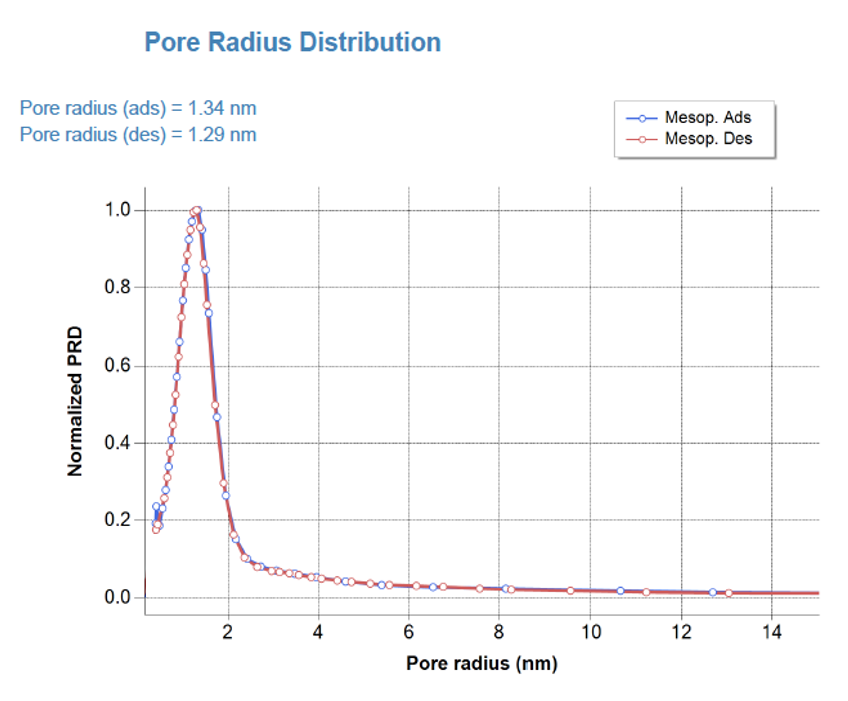
APPLICATIONS to EP technique are numerous as thin film porosity is a key factor in Silicon based technology using low k materials or porous Silicon films, Photovoltaic with metal oxides (SiO2, TiO2, W2O3..) for Dye sensitized solar cells, organic electronic with the permeability of the barrier layer for OPV or OLED (encapsulation) as well as in the coating industry using SolGel technique.
FEATURES
EP technique provides reliable and precise measurements of:
- Thickness
- Refractive index
- Porosity
- Diffusion coefficient
- Pore size distribution and Young modulus of porous thin films such as ultra low K, porous Silicon, nanoparticle layers, metal oxides or barrier layers integrity
- Sealing efficiency
Product Line
SE, PS
Products for Ellipsometric Porosimetry are well suited to characterize materials for many applications such as:
- Membranes (water permeability for OLED or OPV applications)
- Storage (fuel cells)
- Sensors (biomaterials, nanomedicine…)
- Catalysis surfaces
- Nano-structure and nano-composite materials
- Hybrid organic & inorganic interfaces…
Products
PS-2000, PS-2500
Semilab Porosimeter Series (PS) metrology systems use Ellipsometry Porosimetry (EP) technique to provide reliable and precise measurements of thickness, refractive index, porosity, pore size distribution and Young modulus of porous thin films such as ultra-low K, porous Silicon, nanoparticle layers, metal oxides or barrier layers integrity... Combining solvent adsorption experiments in a high vacuum chamber to Semilab Spectroscopic Ellipsometry (SE) technology, the PS systems form a comprehensive metrology solution, helping our customers to develop, qualify and monitor current and future processes and especially solve the integration challenges of porous low K materials.
The PS Product Family presents various degrees of automation and wafer size capabilities from coupons to 450mm wafers. Its unique technology enables the structural characterization of CVD and spin coated porous thin film without sample scratching or preparation.
An optional heated chamber, available on 300mm selected models, provides advanced measurement capability such as film annealing or Uniaxial Coefficient of Thermal Expansion (CTE), helping chipmakers identify process issues that can lead to film collapse or cracks.
In our fully automated PS-2500 model, a preheating / cooling station allows desorption of residues or organic materials and moisture from the pore before / after measurement, making sure the total accessible porosity is measured and that no solvent remains in the pores if further processing is needed.
Configurations:
| Sample size | Name | Mapping | Features |
|---|---|---|---|
| Up to 300 mm | PS-2000 | Yes | Manual loading automated transfer Optional Heated chamber for CTE measurements |
| 300mm | PS-2500 | Yes |
Fully automated, 1 load port (300 mm) |
Dual load port with OHT available with PS-3000.
Please contact us for 450 mm wafer capable platforms.
PS instruments can also be used to qualify the sealing layer of both patterned and blanket wafers: the instrument detects the diffusion of solvent through the sealing layer, which leads to a change in refractive index measured by Spectroscopic Ellipsometry. Finally, any PS product is also a traditional spectroscopic ellipsometer, which can address characterization needs of non-porous thin films.
Ellipsometry porosimetry (EP) technology was patented by IMEC and licenced exclusively to Semilab.
Request InfoEPA or Vacuum Porosimetry extension for SE-2000 Spectroscopic Ellipsometer
The EPA (Ellipsometric Porosimeter Atmospheric pressure) is designed to allow fast film characterization at ambient pressure and temperature. To make mesopore size investigation simple, cheap, and non toxic, we performed EP measurements using a pulsed air flow with controlled partial pressure of water. This system allows a fast partial pressure equilibration at each point of the isotherm (a complete adsorption-desorption cycle can be obtained within 30 min time)
The EPA setup is made of a spectroscopic ellipsometer on which is fixed a cell of environment control containing the film to analyze. In laboratories, gas volumetry analyses are usually time-consuming, mainly because of long pressure equilibration time within the analysis chamber. In the experimental setup of these experiments, we replaced the pressure equilibration system by a continuous flux of air containing a fixed partial pressure of adsorbate directly in contact with the mesoporous film to analyze.
EPA gives access to:
- Pore size Distribution from 1.5nm to 60 nm diam
- Average pore size
- Porosity
- Cumulative surface area
- Thickness – refractive index – absorption coefficients
- Young Modulus






